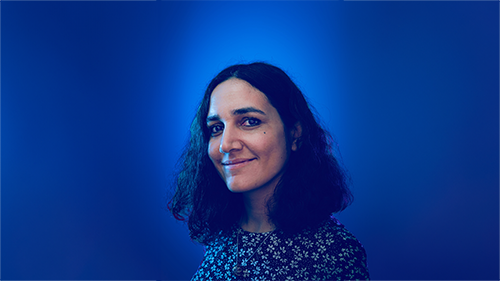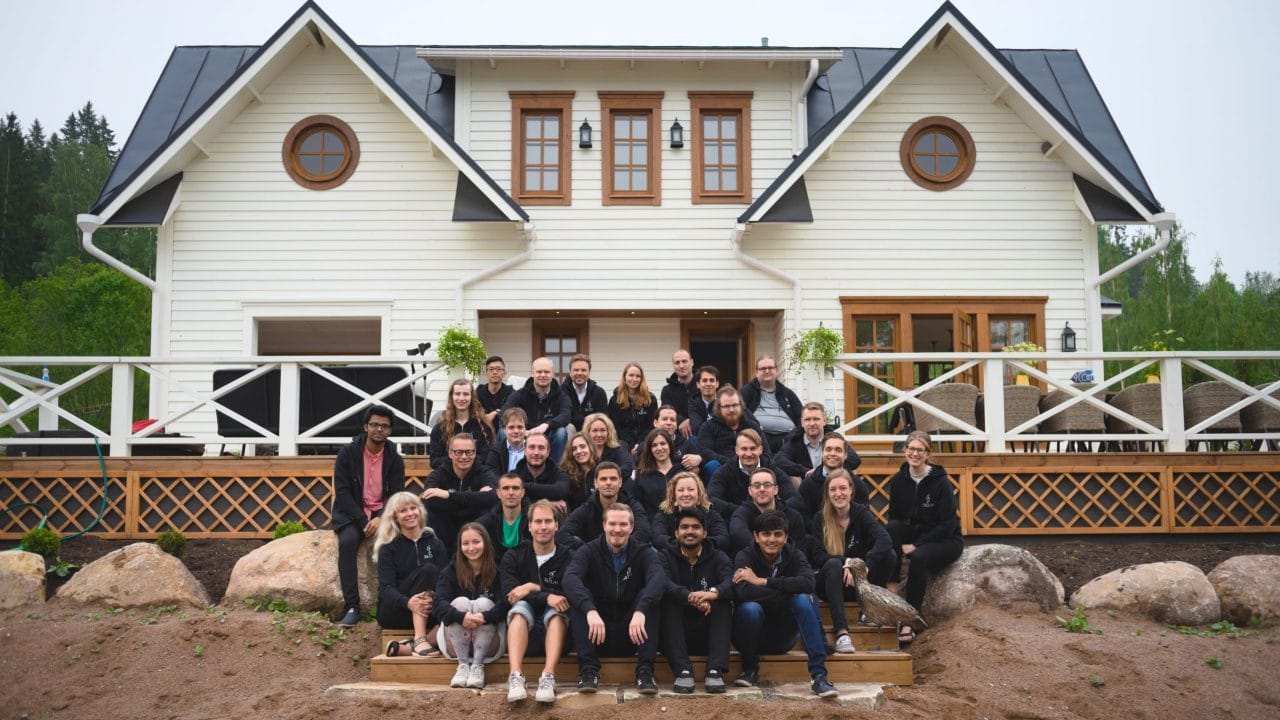Nico Holmberg is a machine learning expert focusing on computer vision. As an AI Scientist at Silo.AI, he has worked on an infrastructure industry project to identify defects in video material and on a weather prediction project using satellite imagery. Prior to joining us, Nico worked with healthcare and industrial manufacturing related computer vision applications, e.g. creating a human movement analysis tool for a hospital setting.
Nico received a PhD in Computational quantum chemistry from Aalto University in 2018. During his PhD studies he focused on developing new methods to design effective materials for renewable energy applications and authored 11 research papers with 250+ citations (For more information, go to Nico’s Google Scholar profile).
Computer vision applies to many crucial industry problems
Computer vision can be applied to a myriad of use cases in various industries, as can already be seen from Nico’s previous projects. As an example, in fields like heavy industry, manufacturing and infrastructure, computer vision can improve the automatic detection and reporting of anomalous events that require human intervention. Many important workflows from predictive maintenance to process automation can also significantly benefit from computer vision.
Nico is a problem-driven person, like so many of us at Silo.AI. Each new project begins with understanding what the customer’s problem really is, what data is available and how we can find the necessary insights from the data.
“My job is to solve business problems with image-based data as my starting point. This data can be something as everyday as images from a traffic camera to highly industry-specific video footage of a manufacturing process. While these images could be watched and analyzed by a human, I am trying to build computer vision solutions that can accurately and quickly recognize what’s happening in order to permit the human to work on more valuable tasks.” Nico explains. “The ultimate goal is to see some pattern before human eyes could have caught it and thus help that person perform better at his/her job.”
As an AI Scientist, Nico tries different approaches to find the optimal way to tackle a problem. There can be several computer vision models that at least on paper should perform well with the same data. However, in Nico’s experience certain models are better suited for certain applications and client demands. Finding the right model requires iterative testing in both the model building and data preprocessing stages.
Many client cases also require domain expertise to understand the data. A prime example of this is identifying defects in a manufacturing process: without understanding the nature of the identified defects, it is impossible to say which defects should be prioritized.
The challenge becomes easier with strong collaboration with the client: “Usually we work as part of client teams. It is very valuable to get their knowledge and feedback to influence the direction of the project. This type of collaboration often sparks new ideas on how the problem can be solved, by breaking the silos.” Nico says.
Self-learning kicked off a career in computer vision
Nico got interested in computer vision while he was still pursuing his doctoral degree. He was originally drawn to physics-based models because he was intrigued by their potential to complement laboratory research and help explain observations from a different angle. However, during his PhD, he noticed that the models he was developing were still very hard to generalize. While the technology was cutting-edge, more practical and general implementation would still require years if not decades of work. In order to build something more concrete, he decided to switch to data science to work with the real-world industry cases.
Nico saw that many computer vision technologies were mature enough to help many industries: “With my academic background, I have a strong theoretical understanding, but I still want to apply my skills to business problems. Once I left university and started my consulting career, the first project I got was computer vision related and I have been excited to work on such projects ever since.”
Nowadays Nico gets to work on real-world cases and he particularly enjoys seeing a solution get to production. In some far-fetching AI projects, it is not uncommon to stay at the proof-of-concept level, but during the past couple of years the trend has improved as more companies view investing into AI as a strategic move. Many have now understood that it is important to form a vision of the next steps already during the proof-of-concept phase.
What Nico enjoys the most, though, is the possibility to work on many different projects and to share knowledge with other AI scientists at Silo.AI: “The client doesn’t get just the one or two AI experts who become part of their team, but the knowledge of the entire company. If I know my colleague has previously been in a similar project, I just sit down with her or him and try to understand how they solved similar challenges that I’m now facing in my new project.” Nico comments.
Think about how you’re going to use the data before collecting it
With a tremendous amount of new data getting created all the time, there's still a lot to do with getting data labeled for supervised learning. Although computer vision technologies can do advanced things like facial recognition, the technology is still at a level that for most applications you need to have well-labeled data.
“There’s an increasing amount of human-annotated data publicly available for training computer vision models, although client use cases often require additional, domain-specific data. Still translating these human annotations into something that a machine can understand can be challenging because annotations are not always collected with machine learning applications in mind. For example, humans have a tendency to enrich their interpretation of images with their own experiences and other contextual information. This can lead to situations where the same image is labeled differently depending on the annotator, or where the model is presented with an impossible learning task in which it cannot learn to make the same deductions solely based on the image.” Nico explains.
The lack of accurately labeled image data could be fixed if companies would think about how they’re going to use the data already when they’re collecting it. At the moment, Silo.AI is hosting an AI accelerator course together with the Finnish artificial intelligence accelerator, where one of the goals has been to help companies think about how to start collecting data for AI purposes.
“I would like to see less and less need for human annotation and more ideas that solve the labeling problem. Models could infer the label directly from the data or better still they wouldn’t need labeled data at all. This, of course, will vary according to the use case.” Nico ponders.
Tips on staying up to date on computer vision technologies
When Nico was working on his PhD he was able to follow the most relevant journals like Journal of Physical Chemistry or Physical Review on a regular basis. In his current work, he needs to figure out different ways to stay up-to-date as the number of published computer vision papers is much larger and the approach to learning is more practical.
“Going through previous similar projects to see what worked there is a good start. To filter through the latest research articles and technical developments, following influential machine learning researchers and practitioners, such as Jeremy Howard (@jeremyphoward) or François Chollet (@fchollet), on Twitter and Reddit’s r/machinelearning subreddit are great resources for bringing the most exceptional works to your radar. I also like to stay up to date on the big American companies’ research centers, such as those of Facebook, Google and Microsoft. There’s also paperswithcode.com which is an excellent resource for browsing through published papers and code for state-of-the-art models for various computer vision and other machine learning tasks."
Nico encourages anyone interested to learn more about computer vision: “It’s pretty easy to get started. Stanford, MIT and other universities offer comprehensive material freely as YouTube videos and other web content. It’s important to gain hands-on experience with computer vision software like Google’s TensorFlow in addition to building a solid theoretical understanding. Adapting existing code to solve problems that interest you is an ideal method for that purpose. Although you’re bound to meet challenges while learning to use these technologies, nowadays the barrier to start is very low thanks to detailed walkthrough notebooks that you can interact with directly in the browser using Google Colab or Kaggle.”
“Open sourced models and code is a major inspiration and tool. It’s great from a research perspective and it is very helpful when looking for different models to try out on a new problem. I try to open source my work whenever I can, in a form of giving back to the community.” Nico says.
Traveling and sports give head space
Nico loves to travel and explore new places. In his daily life, Nico keeps fit by swimming, biking and running, and yes, you guessed it, he’s an active triathlonist. These hobbies help Nico focus on other things than work and that head space usually provides room for good ideas then later on.

Favorite Silo.AI value?
“My favorite value is Keep Learning. In 10 years computer vision will go very far. In five years we won’t be using the same models anymore. That’s why I’m really happy that Keep Learning is one of our core values, and we have monthly workshops for both soft and hard technical skills.”
Want to join Silo.AI as Nico's colleague? We are especially looking for Computer Vision experts to our offices in Helsinki, Turku and Oulu to solve real-life cases using the latest CV & ML techniques. Fill in application or get directly in touch with our Talent Acquisition Lead Jenni at jenni.kivikoski@silo-ai.hel5.wp-cloud.dev.

About
Join the 5000+ subscribers who read the Silo AI monthly newsletter to be among the first to hear about the latest insights, articles, podcast episodes, webinars, and more.





